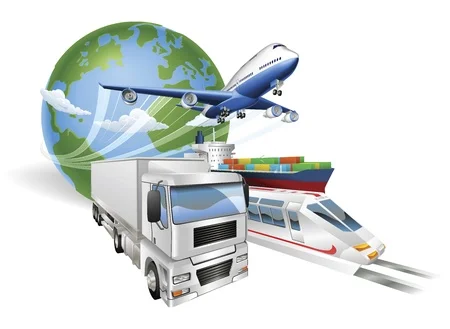In the supply chain, the outbound logistics phase, also known as distribution logistics, is when the product is delivered to the location where the client wants it. This accomplishment is the outcome of a strategy that benefits the consumer as well as the processing and shipping of the goods. Distribution channels are connected to outbound logistics. Specifically, the frameworks developed to facilitate the sale of the goods and their delivery to the final customer. This phrase is also used to refer to the so-called “last mile logistics,” though. It is the final step in the distribution process and is given more and more weight in the logistics plan of the company.
Read also : Inbound Logistics: Everything You Need to Know
Outbound logistics functions
The phase of supply chain management known as outbound logistics is in charge of getting the goods to its customer. In actuality, this destination could be the final consumer, a different corporation, or a business. It’s crucial to remember that logistics don’t just apply to transportation. Outbound logistics also covers additional tasks even though transportation is a crucial component. A mong these:
- Choose the packaging’s type and size. As part of supply logistics, the business receives goods from vendors. On the other hand, at the distribution stage, the company turns into a supplier to its clients. One of the specifications in this field is that the goods must reach the customer in good shape. Determine the vehicles used to convey the goods. One must first take into account the unique characteristics of the merchandise. On the other hand, vehicles’ types, speeds, adaptability, and sizes.
- Distribution areas. The distribution area, a key component of outbound logistics, affects costs in many ways.
Although outbound logistics covers a wide range of other topics, the aforementioned three roles are interconnected. Additionally, all of the other participants in the chain will take into account the decisions the organization makes in this regard.
Outbound logistics challenges

Outbound Logistics: What Is It and What Is Its Importance? | Image Source: xrtlogistics.com
The major goals of distribution in the logistics industry are to ensure maximum customer satisfaction while maintaining dependability and flexibility of delivery with optimal profitability.
When put that way, it sounds easy. But reaching these goals requires dealing with a number of difficulties:
- Plan the transportation modes and routes between the production and the demand or delivery sites.
- Flexible storage is a must. Demand and supply frequently do not match up in time.
- Sync up the quantities being provided and received. The business must come up with a way to serve diverse clients in partial quantities.
- Ensure that whole assortments may be delivered to certain recipients. The delivery of specific items from the various manufacturing points to one or more clients must be ensured by outbound logistics.
Source of:
Distribution logistics, also known as output logistics, is a method for organizing, carrying out, and managing the flow of commodities over a period of time and space.
For this, it is vital to ensure communication and information exchange between suppliers and customers, as well as to have detailed information flows.
In essence, a system for the exchange of goods and information between various companies is the foundation of outbound logistics. Designing a logistical channel from supplier to client that operates profitably and achieves predetermined goals is thus a significant problem.
Distribution logistics models
Let’s talk for a brief while about the many models that are used to create an outbound logistics system.
Decentralized: The industrial sector’s most popular. It is based on distribution facilities or warehouses located closer to final consumers.
Centralized: It enables distribution route planning and lowers costs compared to the prior paradigm.
Cross docking: It involves a quick movement of goods from the supplier to the customer rather than any product storage.
Consolidation platform: A strategic cooperation for the distribution of goods from several suppliers.
Are you looking for outbound logistics solutions for your business? The experts of logistics in Canada have more proposals.
Was this knowledge useful? Send us your feedback in the comments!



